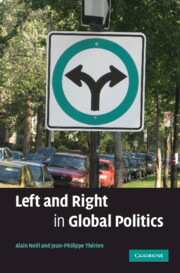Book contents
- Frontmatter
- Contents
- List of tables
- List of figures
- Acknowledgements
- Introduction
- 1 A clash over equality
- 2 A worldwide value divide
- 3 Two tales of globalization
- 4 The rise of the modern state system (1776–1945)
- 5 The age of universality (1945–1980)
- 6 The triumph of market democracy (1980–2007)
- 7 Twenty-first-century rapprochement
- 8 The core currency of political exchange
- Conclusion
- Index
- References
4 - The rise of the modern state system (1776–1945)
Published online by Cambridge University Press: 05 September 2012
- Frontmatter
- Contents
- List of tables
- List of figures
- Acknowledgements
- Introduction
- 1 A clash over equality
- 2 A worldwide value divide
- 3 Two tales of globalization
- 4 The rise of the modern state system (1776–1945)
- 5 The age of universality (1945–1980)
- 6 The triumph of market democracy (1980–2007)
- 7 Twenty-first-century rapprochement
- 8 The core currency of political exchange
- Conclusion
- Index
- References
Summary
The opposition between the left and the right did not emerge spontaneously. The debate as we know it took shape gradually, out of the protracted conflict over the construction of the modern state system. With the rise of liberalism, a world of overlapping hierarchies was gradually challenged by a new one defined by the intrinsic equality of all able-bodied adult men. Disagreements about the exact meaning of this newly affirmed common citizenship were unavoidable, however, and they became inherent in most, if not all, public deliberations.
This chapter retraces the evolution of the opposition between the left and the right over the period between the American Revolution in 1776 and the end of the Second World War in 1945. In this long era of transition, the modern state as we know it, a legitimate bureaucratic and political apparatus presiding over a relatively vast territory, came into being. So did the modern state system, conceived as an international arrangement of stable relationships between sovereign units. The period encompassed here is rich in events which obviously cannot be analyzed in any exhaustive manner. Our aim is simply to offer a better understanding of the ubiquity of left–right debates, by showing how they shaped political views over a range of critical questions across the world. Four themes, central to this period when the modern state and state system were built, are considered: democracy, peace and war, capitalism and socialism, and the colonial enterprise.
- Type
- Chapter
- Information
- Left and Right in Global Politics , pp. 83 - 106Publisher: Cambridge University PressPrint publication year: 2008



